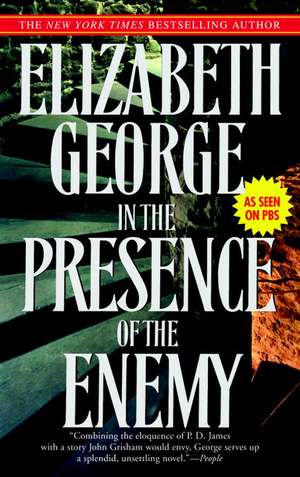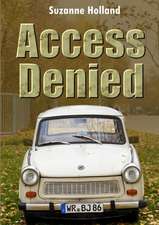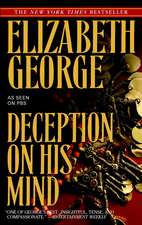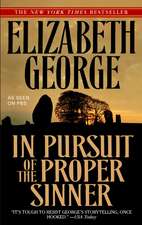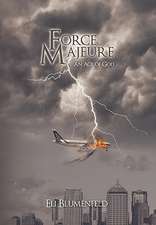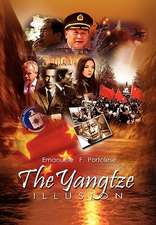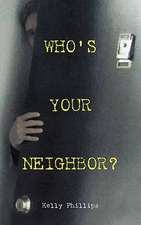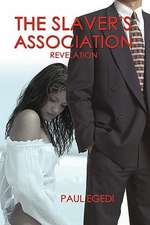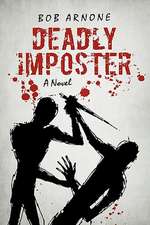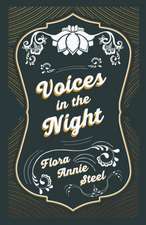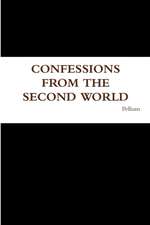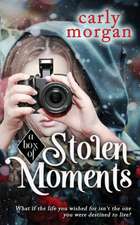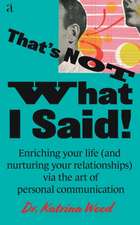In the Presence of the Enemy
Autor Elizabeth A. Georgeen Limba Engleză Paperback – 31 mai 2008
Ten-year-old Charlotte Bowen has been abducted, and if Luxford does not admit publicly to having fathered her, she will die. But Charlotte's existence is Luxford's most fiercely guarded secret, and acknowledging her as his child will throw more than one life and career into chaos. Luxford knows that the story of Charlotte's paternity could make him a laughingstock and reveal to his beautiful wife and son the lie he's lived for a decade. Yet it's not only Luxford's reputation that's on the line: it's also the reputation—and career—of Charlotte Bowen's mother. For she is Undersecretary of State for the Home Office, one of the most high-profile Junior Ministers and quite possibly the next Margaret Thatcher.
Knowing that her political future hangs in the balance, Eve Bowen refuses to let Luxford damage her career by printing the story or calling the police. So the editor turns to forensic scientist Simon St. James for help. It's a case that fills St. James with disquiet, however, for none of the players in the drama seem to react the way one would expect.
Then tragedy occurs and New Scotland Yard becomes involved. Detective Inspector Thomas Lynley soon discovers that the case sends tentacles from London into the countryside, and he must simultaneously outfox death as he probes Charlotte Bowen's mysterious disappearance. Meanwhile, his partner Detective Sergeant Barbara Havers, working part of the investigation on her own and hoping to make the coup of her career, may be drawing closer to a grim solution—and to danger—than anyone knows.
In the Presence of the Enemy is a brilliantly insightful and haunting novel of ideals corrupted by self-interest, of the sins of parents visited upon children, and of the masks that hide people from each other—and from themselves.
From the Paperback edition.
Preț: 113.83 lei
Nou
Puncte Express: 171
Preț estimativ în valută:
21.79€ • 23.52$ • 18.27£
21.79€ • 23.52$ • 18.27£
Carte disponibilă
Livrare economică 28 martie-11 aprilie
Preluare comenzi: 021 569.72.76
Specificații
ISBN-13: 9780553385502
ISBN-10: 055338550X
Pagini: 625
Dimensiuni: 135 x 211 x 27 mm
Greutate: 0.61 kg
Editura: Bantam Books
ISBN-10: 055338550X
Pagini: 625
Dimensiuni: 135 x 211 x 27 mm
Greutate: 0.61 kg
Editura: Bantam Books
Notă biografică
Elizabeth George’s first novel, A Great Deliverance, was honored with the Anthony and Agatha Best First Novel Awards and received the Grand Prix de Littérature Policière. Her third novel, Well-Schooled in Murder, was awarded the prestigious German prize for suspense fiction, the MIMI. A Suitable Vengeance, For the Sake of Elena, Missing Joseph, Playing for the Ashes, In the Presence of the Enemy, Deception on His Mind, In Pursuit of the Proper Sinner, A Traitor to Memory, and I, Richard were international bestsellers. Elizabeth George divides her time between Huntington Beach, California, and London. Her novels are currently being dramatized by the BBC.
Extras
Charlotte Bowen thought she was dead. She opened her eyes into cold and darkness. The cold was beneath her, feeling just like the ground in her mother's garden planter, where the never-stop drips from the outdoor tap made a patch of damp that was green and smelly. The darkness was everywhere. Black pushed against her like a heavy blanket, and she strained her eyes against it, trying to force out of the endless nothing a shape that might tell her she wasn't in a grave. She didn't move at first. She didn't reach out either fingers or toes because she didn't want to feel the sides of the coffin, because she didn't want to know that death was like this when she'd thought there'd be saints and sunlight and angels, with the angels sitting on swings playing harps.
Charlotte listened hard, but there was nothing to hear. She sniffed, but there was nothing to smell except the mustiness all round her, the way old stones smell after mould's grown on them. She swallowed and tasted the vague memory of apple juice. And the flavour was enough to make her recall.
He'd given her apple juice, hadn't he? He'd handed over a bottle with a cap that he'd loosened and shiny beads of moisture speckling its sides. He'd smiled and squeezed her shoulder once. He'd said, "Not to worry, Lottie. Your mum doesn't want that."
Mummy. That was what this was all about. Where was Mummy? What had happened to her? And to Lottie? What had happened to Lottie?
"There's been an accident," he'd said. "I'm to take you to your mum."
"Where?" she'd said. "Where's Mummy?" And then louder, because her stomach felt liquidy all of a sudden and she didn't like the way he was looking at her, "Tell me where's my mum! Tell me! Right now!"
"It's all right," he'd said quickly with a glance about. Just like Mummy, he was embarrassed because of her noise. "Quiet down, Lottie. She's in a Government safe house. Do you know what that means?"
Charlotte had shaken her head. She was, after all, only ten years old and most of the workings of the Government were a mystery to her. All she knew for sure was that being in the Government meant that Mummy left home before seven in the morning and usually didn't come back till after she was asleep. Mummy went to her office in Parliament Square. She went to her meetings in the Home Office. She went to the House of Commons. On Friday afternoons she held surgery for her constituents in Marylebone, while Lottie did her school prep, tucked out of sight in a yellow-walled room where the constituency's executive committee met.
"Behave yourself," her mother would say when Charlotte arrived after school each Friday afternoon. She'd give a meaningful tilt of her head in the direction of that yellow-walled room. "I don't want to hear a peep out of you till we leave. Is that clear?"
"Yes, Mummy."
And then Mummy would smile. "So give us a kiss," she would say. "And a hug. I want a hug as well." And she would stop her discussion with the parish priest or the Pakistani grocer from the Edgware Road or the local schoolteacher or whoever else wanted ten precious minutes of their MP's time. And she'd catch Lottie up in a stiff-armed hug that hurt. Then she'd swat her bottom and say, "Off with you now," and turn back to her visitor, saying, "Kids," with a chuckle.
Fridays were best. After Mummy's surgery, she and Lottie would ride home together and Lottie would tell her all about her week. Her mother would listen. She would nod, and sometimes pat Lottie's knee, but all the time she kept her eyes fixed to the road, just beyond their driver's head.
"Mummy," Lottie would say with a martyred sigh in a useless attempt to wrest her mother's attention from Marylebone High Street to herself. Mummy didn't have to look at the high street after all. It's not as if she was driving the car. "I'm talking to you. What're you looking for?"
"Trouble, Charlotte. I'm looking for trouble. You'd be wise to do the same."
Trouble had come, it seemed. But a Government safe house? What was that exactly? Was it a place to hide if someone dropped a bomb?
"Are we going to the safe house?" Lottie had gulped down the apple juice in a rush. It was a little peculiar—not nearly sweet enough—but she drank it down properly because she knew it was naughty to seem ungrateful to an adult.
"That we are," he'd said. "We're going to the safe house. Your mum's waiting there."
Which was all that she could remember distinctly. Things had got quite blurry after that. Her eyelids had grown heavy as they drove through London, and within minutes it seemed that she hadn't been able to hold up her head. At the back of her mind, she seemed to recall a kind voice saying, "That's the girl, Lottie. Have a nice kip, won't you," and a hand gently removing her specs.
At this final thought, Lottie inched her hands up to her face in the darkness, keeping them as near as possible to her body so that she wouldn't have to feel the sides of the coffin she was lying in. Her fingers touched her chin. They climbed slowly up her cheeks in a spider walk. They felt their way across the bridge of her nose. Her specs were gone.
That made no difference in the darkness, of course. But if the lights went on...Only how were lights to go on in a coffin?
Lottie took a shallow breath. Then another. And another. How much air? She wondered. How much time before...And why? Why?
She felt her throat getting tight and her chest getting hot. She felt her eyes burn. She thought, Mustn't cry, mustn't ever ever cry. Mustn't ever let anyone see...Except there was nothing to see, was there? There was nothing but endless black upon black. Which made her throat tight, which made her chest hot, which made her eyes burn all over again. Mustn't, Lottie thought. Mustn't cry. No, no.
Charlotte listened hard, but there was nothing to hear. She sniffed, but there was nothing to smell except the mustiness all round her, the way old stones smell after mould's grown on them. She swallowed and tasted the vague memory of apple juice. And the flavour was enough to make her recall.
He'd given her apple juice, hadn't he? He'd handed over a bottle with a cap that he'd loosened and shiny beads of moisture speckling its sides. He'd smiled and squeezed her shoulder once. He'd said, "Not to worry, Lottie. Your mum doesn't want that."
Mummy. That was what this was all about. Where was Mummy? What had happened to her? And to Lottie? What had happened to Lottie?
"There's been an accident," he'd said. "I'm to take you to your mum."
"Where?" she'd said. "Where's Mummy?" And then louder, because her stomach felt liquidy all of a sudden and she didn't like the way he was looking at her, "Tell me where's my mum! Tell me! Right now!"
"It's all right," he'd said quickly with a glance about. Just like Mummy, he was embarrassed because of her noise. "Quiet down, Lottie. She's in a Government safe house. Do you know what that means?"
Charlotte had shaken her head. She was, after all, only ten years old and most of the workings of the Government were a mystery to her. All she knew for sure was that being in the Government meant that Mummy left home before seven in the morning and usually didn't come back till after she was asleep. Mummy went to her office in Parliament Square. She went to her meetings in the Home Office. She went to the House of Commons. On Friday afternoons she held surgery for her constituents in Marylebone, while Lottie did her school prep, tucked out of sight in a yellow-walled room where the constituency's executive committee met.
"Behave yourself," her mother would say when Charlotte arrived after school each Friday afternoon. She'd give a meaningful tilt of her head in the direction of that yellow-walled room. "I don't want to hear a peep out of you till we leave. Is that clear?"
"Yes, Mummy."
And then Mummy would smile. "So give us a kiss," she would say. "And a hug. I want a hug as well." And she would stop her discussion with the parish priest or the Pakistani grocer from the Edgware Road or the local schoolteacher or whoever else wanted ten precious minutes of their MP's time. And she'd catch Lottie up in a stiff-armed hug that hurt. Then she'd swat her bottom and say, "Off with you now," and turn back to her visitor, saying, "Kids," with a chuckle.
Fridays were best. After Mummy's surgery, she and Lottie would ride home together and Lottie would tell her all about her week. Her mother would listen. She would nod, and sometimes pat Lottie's knee, but all the time she kept her eyes fixed to the road, just beyond their driver's head.
"Mummy," Lottie would say with a martyred sigh in a useless attempt to wrest her mother's attention from Marylebone High Street to herself. Mummy didn't have to look at the high street after all. It's not as if she was driving the car. "I'm talking to you. What're you looking for?"
"Trouble, Charlotte. I'm looking for trouble. You'd be wise to do the same."
Trouble had come, it seemed. But a Government safe house? What was that exactly? Was it a place to hide if someone dropped a bomb?
"Are we going to the safe house?" Lottie had gulped down the apple juice in a rush. It was a little peculiar—not nearly sweet enough—but she drank it down properly because she knew it was naughty to seem ungrateful to an adult.
"That we are," he'd said. "We're going to the safe house. Your mum's waiting there."
Which was all that she could remember distinctly. Things had got quite blurry after that. Her eyelids had grown heavy as they drove through London, and within minutes it seemed that she hadn't been able to hold up her head. At the back of her mind, she seemed to recall a kind voice saying, "That's the girl, Lottie. Have a nice kip, won't you," and a hand gently removing her specs.
At this final thought, Lottie inched her hands up to her face in the darkness, keeping them as near as possible to her body so that she wouldn't have to feel the sides of the coffin she was lying in. Her fingers touched her chin. They climbed slowly up her cheeks in a spider walk. They felt their way across the bridge of her nose. Her specs were gone.
That made no difference in the darkness, of course. But if the lights went on...Only how were lights to go on in a coffin?
Lottie took a shallow breath. Then another. And another. How much air? She wondered. How much time before...And why? Why?
She felt her throat getting tight and her chest getting hot. She felt her eyes burn. She thought, Mustn't cry, mustn't ever ever cry. Mustn't ever let anyone see...Except there was nothing to see, was there? There was nothing but endless black upon black. Which made her throat tight, which made her chest hot, which made her eyes burn all over again. Mustn't, Lottie thought. Mustn't cry. No, no.
Recenzii
"Combining the eloquence of P.D. James with a story John Grisham would envy, George serves up a splendid, unsettling novel."—People
"Elizabeth George reigns as queen of the mystery genre....the Lynley books constitute the smartest, most gratifyingly complex and impassioned mystery series now being published."—Entertainment Weekly
"Rich...and addictively readable...elegant and unsettling, classy and caustic...a page-turner with unusual breadth and generous depth." —USA Today
"Elizabeth George only gets better...another superb British mystery."—Daily News, New York
"A masterpiece."—Winston-Salem Journal
"Tough, breathtaking."—Cosmopolitan
"A dazzler."—New Yorker
From the Paperback edition.
"Elizabeth George reigns as queen of the mystery genre....the Lynley books constitute the smartest, most gratifyingly complex and impassioned mystery series now being published."—Entertainment Weekly
"Rich...and addictively readable...elegant and unsettling, classy and caustic...a page-turner with unusual breadth and generous depth." —USA Today
"Elizabeth George only gets better...another superb British mystery."—Daily News, New York
"A masterpiece."—Winston-Salem Journal
"Tough, breathtaking."—Cosmopolitan
"A dazzler."—New Yorker
From the Paperback edition.
